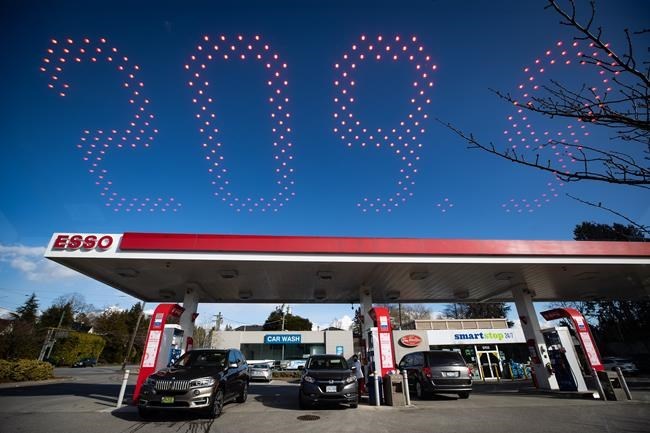OTTAWA — New Brunswick Conservative MP John Williamson says his province should go back to using the federal carbon price because at least it comes with rebates that could ease the current pain of prices at the pump.
The Russian invasion of Ukraine and ensuing moves by western allies to ban or reduce imports of Russian oil sent crude prices soaring and then gas prices followed.
Gas prices this week exceeded $2 a litre in Vancouver and Montreal, and average close to $1.85 across the country. Filling a car with 50 litres of gas costs Canadians an average of $15.50 more today than it did a month ago, and almost $32 more than it did a year ago.
The result is a scramble by politicians everywhere to find a way to give relief. Conservatives, longtime opponents of the "carbon tax," immediately saw scrapping it as the solution.
Multiple leadership candidates and conservative premiers want the government to scrap next month's planned increase of $10 per tonne, which would increase the carbon price from 8.8 cents to 11 cents per litre.
Environment Minister Steven Guilbeault said that's a non-starter, and the carbon price has nothing to do with why gas prices went up.
"What we're seeing now is a result of what's happening in Ukraine largely and supply-chain issues related to COVID," he said Wednesday in a speech at the Canadian Club Toronto.
And he said eight in 10 families in the provinces using the federal carbon-pricing system will get more back from the rebate program than they pay in carbon levies. The rebates are designed to prevent families from being worse off from the carbon price, but still having an incentive to save even more by reducing their fossil fuel use.
The federal rebates vary by province depending on fossil fuel consumption. Alberta and Saskatchewan, which rely heavily on coal for electricity, have average rebates of $953 and $969 per family respectively. Manitoba and Ontario, where electricity is drawn mainly from non-emitting sources, averaged rebates of $705 and $592 in 2021.
Federal documents suggest the average cost of the carbon price in 2021 was $439 in Ontario, $462 in Manitoba, $598 in Alberta and $720 in Saskatchewan.
The rebates will go up in concert with the increased carbon price next month.
Among provinces with their own carbon price, only British Columbia also has a direct rebate program.
Williamson said Friday he still believes carbon pricing is the wrong way to address climate change. But given that the federal Liberals have a law requiring all provinces to have their own carbon price or use the federal program, Williamson said it would be better to use the plan that gives money back.
"I'm trying to find the best, fastest way to deliver tax relief, financial relief to constituents in New Brunswick or I should say to New Brunswick households, New Brunswick families," Williamson said in an interview.
New Brunswick cut its gasoline excise tax when the carbon price was introduced and last year also said it would use some carbon price revenues to cut income taxes.
Guilbeault said it's about time the Conservatives acknowledged the federal carbon price comes with a rebate cheque for families.
The Liberals have long accused the Conservatives of ignoring the rebate side of the carbon-price program every time they say carbon prices cost families more.
"It's refreshing to see a Conservative MP acknowledge that our price on pollution puts money back in the pockets of middle class families," he said on Twitter.
Trevor Tombe, a University of Calgary economist, said every cent of the gas price increase in the last month is because of crude oil prices. About one-third of the pump price of gasoline goes to federal and provincial taxes, and about one-sixth of the tax bill is the carbon price.
This report by The Canadian Press was first published March 11, 2022.
Mia Rabson, The Canadian Press

